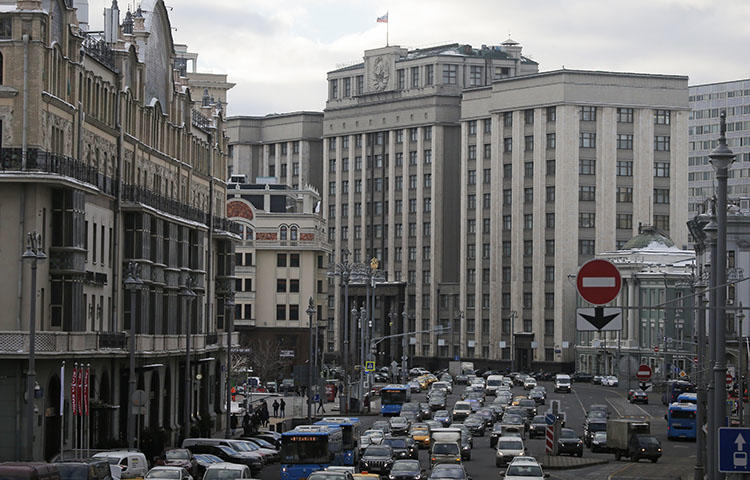New York, July 3, 2018–The Committee to Protect Journalists today called on Russian authorities to refrain from labeling individual bloggers and journalists as foreign agents. The State Duma’s information and communication committee today approved legislation that would allow authorities to label private persons as foreign agents if they work for organizations the Justice Ministry labels as foreign agents or receive funding for producing content for these organizations, according to media reports.
The proposed legislation would require individuals to go through annual audit, submit a bi-annual report on their work activities, and put a “foreign agent” label on all produced content, according to the reports.
“Labeling journalists, including bloggers, as foreign agents is the latest step in the Russian authorities’ systematic policy towards obstructing the free flow of news,” said CPJ’s Europe and Central Asia research associate, Gulnoza Said. “We call on Russian authorities to reverse course and allow its citizens to receive information and opinion from a wide range of sources.”
The Duma, the lower house of parliament, initially passed a related bill in January. The parliament’s upper house, the Federation Council, is yet to vote on the legislation, which also requires presidential approval before becoming law.
The information and communication committee’s chair, Leonid Levin, who co-authored the latest proposals, told the state news agency Interfax that the Foreign Ministry and State Prosecutor’s office, two separate entities, would be responsible for labeling private persons as foreign agents “for additional protection of individuals from accidental decisions” from the Justice Ministry. Those bloggers who “simply repost information of foreign agents” will not “suffer,” Levin said. The Justice Ministry will still determine which groups fall into the category of foreign agent.
The latest legislation also includes provisions that would prevent websites or other media being blocked without a court ruling, according to news reports.
Today’s action came after the Kremlin-funded television station RT, formerly Russia Today, said in November that it had complied with a U.S. Justice Department order to register under the Foreign Agents Registration Act (FARA).
The Justice Ministry has already used the newly expanded laws to designate nine U.S.-funded news outlets, including the U.S. Congress-funded Voice of America (VOA) and Radio Free Europe/Radio Liberty (RFE/RL), as foreign agents, according to reports.
